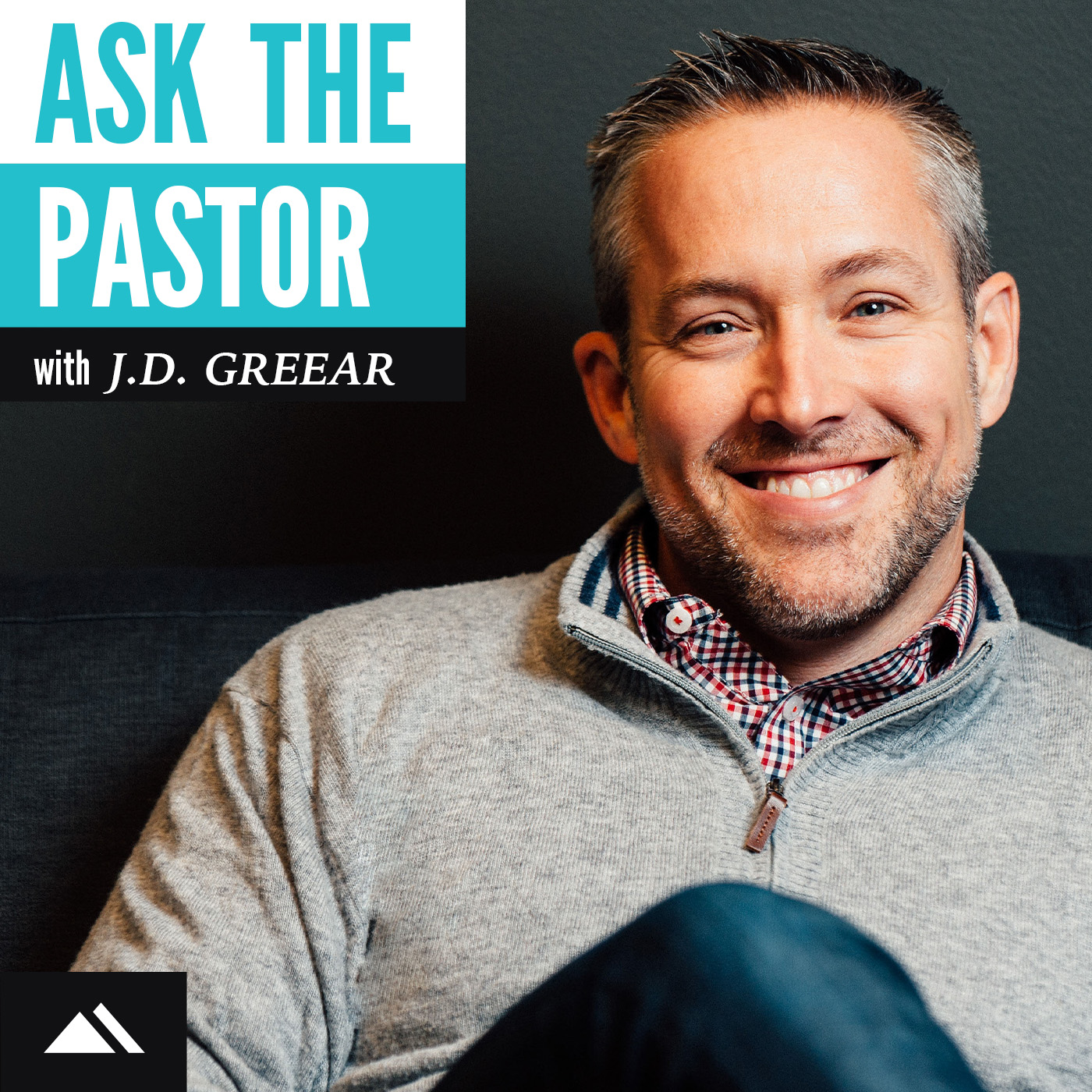

Ask the Pastor with J.D. Greear
J.D. Greear
Ask the Pastor with J.D. Greear is a weekly podcast that answers tough questions and tackles relevant issues in a way that is filled with grace, understanding, and wisdom from God’s Word. Hosted by Matt Love.
Episodes
Mentioned books

May 10, 2021 • 13min
Is Personal Suffering Still a Primary Objection People Have to Christianity? A Conversation With Rebecca McLaughlin, Part 4
Pastor J.D. and Rebecca McLaughlin discuss Rebecca’s new book, The Secular Creed, as she helps to disentangle the beliefs Christians gladly affirm from those they cannot embrace.

May 3, 2021 • 19min
What Does a Faithful Christian Witness Look Like in a Politically Polarized Time? A Conversation With Rebecca McLaughlin, Part 3
Pastor J.D. and Rebecca McLaughlin discuss several complex questions on topics like same-sex attraction, race, and politics.

Apr 26, 2021 • 20min
Where Are Christians More Shaped By Our Culture Than the Bible? A Conversation With Rebecca McLaughlin, Part 2
Pastor J.D. and Rebecca McLaughlin discuss some areas of life where Christians have been more shaped by culture than Scripture.

Apr 19, 2021 • 14min
How has defending faith changed in our current culture? A Conversation with Rebecca McLaughlin, Part 1
Pastor J.D. and Rebecca McLaughlin discuss the traditional approach to defending our faith in light of the current questions people are asking.

Apr 12, 2021 • 10min
Who Are the Three Most Influential Women in Your Life?
Pastor J.D. shares the valuable wisdom he’s learned from three of the women who have influenced him most.

Apr 5, 2021 • 11min
Do women have a place in church leadership?
Pastor J.D. discusses the role of women within the church, especially as it relates to positions of leadership.

Mar 22, 2021 • 18min
Are churches too focused on the weekend service? With special guest Will Mancini
Pastor J.D. and Matt Love sit down with Will Mancini to talk about his new book and answer an important question about the future of the church.

Mar 15, 2021 • 15min
Is every man called to be a leader?
Pastor J.D. discusses God’s design for men according to Genesis 2 and 3.

Mar 8, 2021 • 14min
How do you know you’re growing as a disciple of Jesus?
Pastor J.D. shares five identities of a disciple—worshiper, family member, servant, steward, witness.

Feb 22, 2021 • 13min
What Does It Mean to Be Pro-Life?
Pastor J.D. defines what it means to be pro-life and explains what it requires and the responsibility for Christians.


